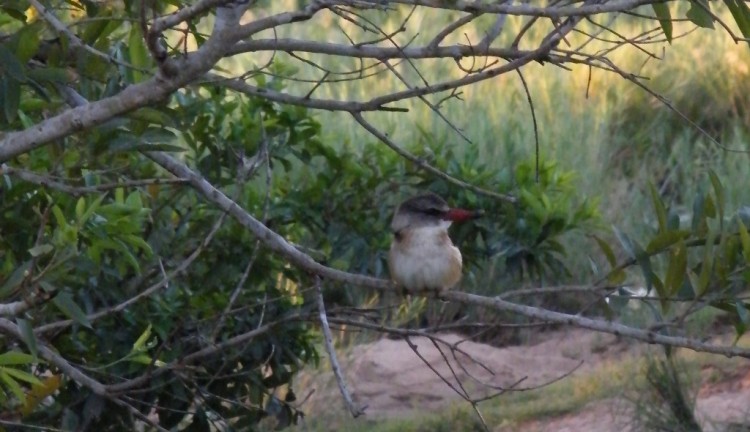Kruger National Park Challenges - New Entries
- Richprins
- Committee Member
- Posts: 75357
- Joined: Sat May 19, 2012 3:52 pm
- Location: NELSPRUIT
- Contact:
Re: Kruger National Park Challenges - New Entries
Please check Needs Attention pre-booking: https://africawild-forum.com/viewtopic.php?f=322&t=596
-
Klipspringer
- Global Moderator
- Posts: 5858
- Joined: Sat Sep 14, 2013 12:34 pm
- Country: Germany
- Contact:
-
Klipspringer
- Global Moderator
- Posts: 5858
- Joined: Sat Sep 14, 2013 12:34 pm
- Country: Germany
- Contact:
Re: Kruger National Park Challenges - New Entries
Note the obvious white spots on the central tail 
This is an African cuckoo on the S36
This is an African cuckoo on the S36
-
Klipspringer
- Global Moderator
- Posts: 5858
- Joined: Sat Sep 14, 2013 12:34 pm
- Country: Germany
- Contact:
- Flutterby
- Posts: 44029
- Joined: Sat May 19, 2012 12:28 pm
- Country: South Africa
- Location: Gauteng, South Africa
- Contact:
Re: Kruger National Park Challenges - New Entries
Openbills.
-
Klipspringer
- Global Moderator
- Posts: 5858
- Joined: Sat Sep 14, 2013 12:34 pm
- Country: Germany
- Contact:
- Richprins
- Committee Member
- Posts: 75357
- Joined: Sat May 19, 2012 3:52 pm
- Location: NELSPRUIT
- Contact:
Re: Kruger National Park Challenges - New Entries
Please check Needs Attention pre-booking: https://africawild-forum.com/viewtopic.php?f=322&t=596
-
Klipspringer
- Global Moderator
- Posts: 5858
- Joined: Sat Sep 14, 2013 12:34 pm
- Country: Germany
- Contact:
Re: Kruger National Park Challenges - New Entries
Blacksmith Lapwing & Hamerkop - 70 Points
Egyptian Goose & Marabou Stork
Violet-backed Starling female
Violet-backed starlings nest in tree holes high off the ground, lining the nests with dung, leaves and other plant material. They have been known to reuse nests in successive breeding seasons. The oval, spotted blue eggs are incubated for a period of roughly 2 weeks. It is believed that only the female incubates the eggs, but both adults feed the hatchlings.
Egyptian Goose & Marabou Stork
Violet-backed Starling female
Violet-backed starlings nest in tree holes high off the ground, lining the nests with dung, leaves and other plant material. They have been known to reuse nests in successive breeding seasons. The oval, spotted blue eggs are incubated for a period of roughly 2 weeks. It is believed that only the female incubates the eggs, but both adults feed the hatchlings.
Last edited by Klipspringer on Mon Apr 22, 2019 12:11 pm, edited 1 time in total.
- Richprins
- Committee Member
- Posts: 75357
- Joined: Sat May 19, 2012 3:52 pm
- Location: NELSPRUIT
- Contact:
Re: Kruger National Park Challenges - New Entries
Brown-hooded kingfisher: H4-1

Please check Needs Attention pre-booking: https://africawild-forum.com/viewtopic.php?f=322&t=596
- Richprins
- Committee Member
- Posts: 75357
- Joined: Sat May 19, 2012 3:52 pm
- Location: NELSPRUIT
- Contact:
Re: Kruger National Park Challenges - New Entries
Malachite Kingfisher - Faai Stream
Please check Needs Attention pre-booking: https://africawild-forum.com/viewtopic.php?f=322&t=596


